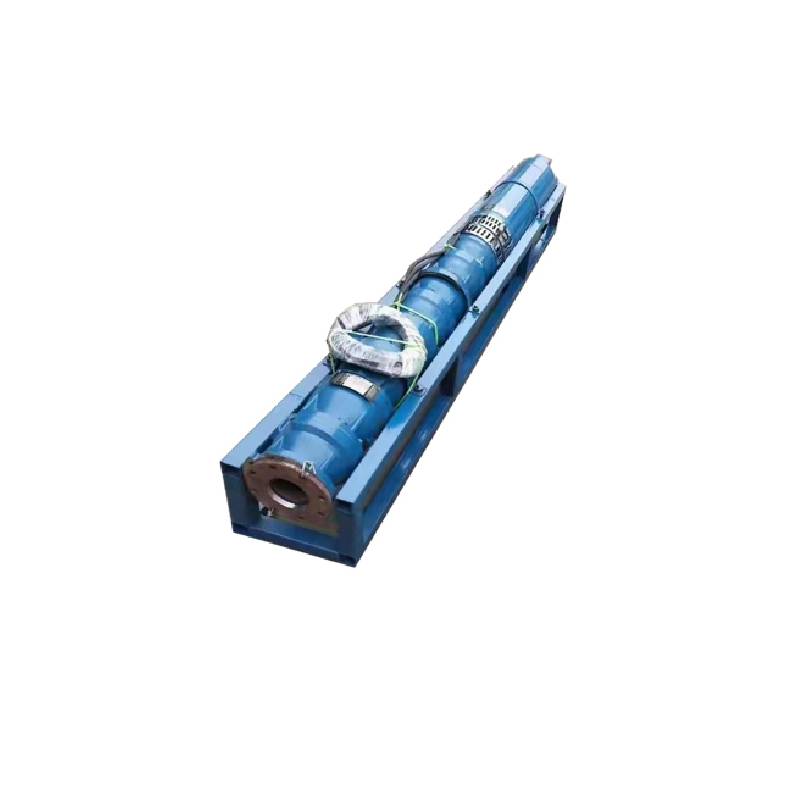Dec . 03, 2024 22:43 Back to list
Durable Submersible Pump for Chemical Resistance in Various Applications
Chemical Resistant Submersible Pumps Essential Tools for Industrial Applications
In various industrial applications, the management of liquid materials is a crucial task that demands efficiency and reliability. One of the key components facilitating this process is the submersible pump, specifically designed to handle challenging environments, including those involving aggressive chemicals. Chemical resistant submersible pumps have emerged as essential tools in sectors such as wastewater treatment, chemical processing, and mining, among others.
Understanding Chemical Resistant Submersible Pumps
A chemical resistant submersible pump is designed to operate while submerged in liquids, mainly for transferring corrosive fluids or wastewater containing chemicals. Unlike traditional pumps that often operate above ground and require suction lift, submersible pumps are located directly within the fluid, significantly increasing their efficiency for deep pumping applications.
The construction of these pumps is specialized to resist the effects of harsh chemicals, with materials such as stainless steel, titanium, and advanced polymers being commonly employed. Each of these materials offers unique advantages in terms of durability, corrosion resistance, and longevity, making them ideal for handling corrosive substances such as acids, alkalis, and solvents.
Applications in Various Industries
Chemical resistant submersible pumps find applications across a broad spectrum of industries
1. Wastewater Treatment In wastewater treatment plants, these pumps are vital for managing effluent and sludge that may contain a variety of hazardous chemicals. Their ability to withstand corrosive environments ensures reliable performance while preventing contamination of the surrounding areas.
2. Chemical Processing Industries involved in chemical manufacturing and processing require pumps that can handle aggressive liquids safely. These submersible pumps help in transporting various fluids, including acids and bases, ensuring the process flows smoothly without any risk of pump failure due to corrosion.
3. Mining and Mineral Processing In mining operations, submersible pumps are often used to remove water from flooded areas and transport slurries that contain chemicals and minerals. Their robust construction enables them to operate effectively in harsh conditions while maintaining the integrity of the materials being pumped.
chemical resistant submersible pump

4. Oil and Gas In the oil and gas sector, these pumps facilitate the removal of abrasive and chemically-rich liquids from drilling sites. Their resilience against wear and tear greatly enhances operational efficiency.
Key Features and Benefits
The design of chemical resistant submersible pumps incorporates several key features that enhance their performance
- Robust Construction The use of high-grade materials ensures that these pumps can withstand corrosive agents, extending their lifespan and reducing the need for frequent replacements.
- Energy Efficiency Many modern submersible pumps are engineered to be energy efficient, which reduces operational costs and the carbon footprint of industrial activities.
- Compact Design The compact nature of submersible pumps allows for ease of installation in tight spaces, making them ideal for various application settings.
- Automatic Operation Most chemical resistant submersible pumps are equipped with automatic controls, enabling real-time adjustments based on the fluid levels and minimizing the risk of overflow or dry running.
Conclusion
Chemical resistant submersible pumps play a vital role in ensuring the safe and efficient management of fluids in numerous industrial applications. By harnessing advanced materials and technology, these pumps offer solutions to the challenges posed by corrosive environments. As industries continue to expand and evolve, the demand for reliable and resilient pumping solutions is only set to increase. Investing in high-quality chemical resistant submersible pumps is not just essential; it is a strategic move for companies looking to enhance their operational efficiency and safeguard their assets.
-
Submersible Water Pump: The Efficient 'Power Pioneer' of the Underwater World
NewsJul.01,2025
-
Submersible Pond Pump: The Hidden Guardian of Water Landscape Ecology
NewsJul.01,2025
-
Stainless Well Pump: A Reliable and Durable Pumping Main Force
NewsJul.01,2025
-
Stainless Steel Submersible Pump: An Efficient and Versatile Tool for Underwater Operations
NewsJul.01,2025
-
Deep Well Submersible Pump: An Efficient 'Sucker' of Groundwater Sources
NewsJul.01,2025
-
Deep Water Well Pump: An Efficient 'Sucker' of Groundwater Sources
NewsJul.01,2025
-
 Submersible Water Pump: The Efficient 'Power Pioneer' of the Underwater WorldIn the field of hydraulic equipment, the Submersible Water Pump has become the core equipment for underwater operations and water resource transportation due to its unique design and excellent performance.Detail
Submersible Water Pump: The Efficient 'Power Pioneer' of the Underwater WorldIn the field of hydraulic equipment, the Submersible Water Pump has become the core equipment for underwater operations and water resource transportation due to its unique design and excellent performance.Detail -
 Submersible Pond Pump: The Hidden Guardian of Water Landscape EcologyIn courtyard landscapes, ecological ponds, and even small-scale water conservancy projects, there is a silent yet indispensable equipment - the Submersible Pond Pump.Detail
Submersible Pond Pump: The Hidden Guardian of Water Landscape EcologyIn courtyard landscapes, ecological ponds, and even small-scale water conservancy projects, there is a silent yet indispensable equipment - the Submersible Pond Pump.Detail -
 Stainless Well Pump: A Reliable and Durable Pumping Main ForceIn the field of water resource transportation, Stainless Well Pump has become the core equipment for various pumping scenarios with its excellent performance and reliable quality.Detail
Stainless Well Pump: A Reliable and Durable Pumping Main ForceIn the field of water resource transportation, Stainless Well Pump has become the core equipment for various pumping scenarios with its excellent performance and reliable quality.Detail
